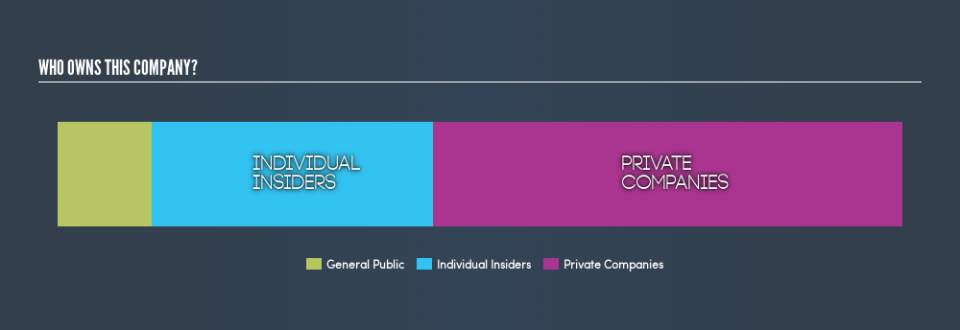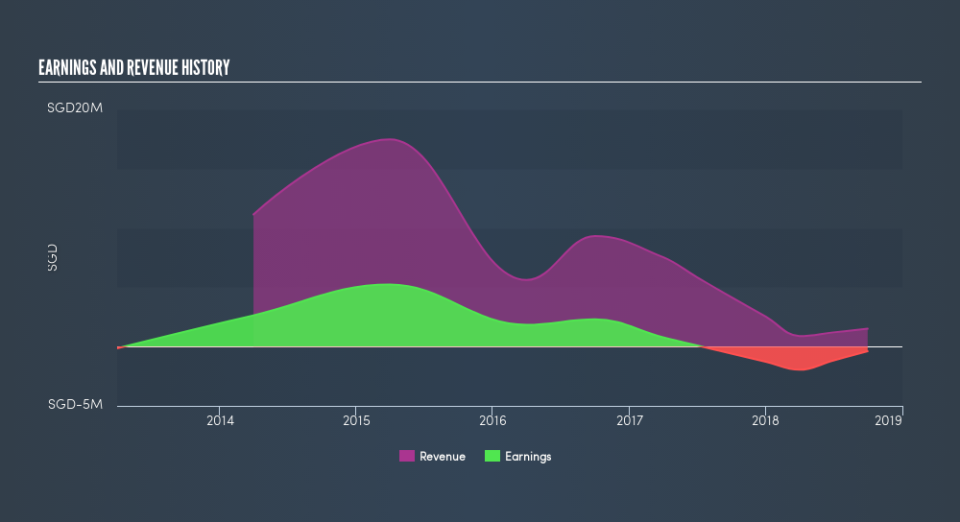Can We See Significant Insider Ownership On The Kingsland Global Ltd. (ASX:KLO) Share Register?

If you want to know who really controls Kingsland Global Ltd. (ASX:KLO), then you’ll have to look at the makeup of its share registry. Institutions will often hold stock in bigger companies, and we expect to see insiders owning a noticeable percentage of the smaller ones. I generally like to see some degree of insider ownership, even if only a little. As Nassim Nicholas Taleb said, ‘Don’t tell me what you think, tell me what you have in your portfolio.’
With a market capitalization of AU$38m, Kingsland Global is a small cap stock, so it might not be well known by many institutional investors. Taking a look at our data on the ownership groups (below), it’s seems that institutions are not on the share registry. Let’s delve deeper into each type of owner, to discover more about KLO.
Check out our latest analysis for Kingsland Global
Want to participate in a research study? Help shape the future of investing tools and earn a $60 gift card!
What Does The Lack Of Institutional Ownership Tell Us About Kingsland Global?
Institutional investors often avoid companies that are too small, too illiquid or too risky for their tastes. But it’s unusual to see larger companies without any institutional investors.
There could be various reasons why no institutions own shares in a company. Typically, small, newly listed companies don’t attract much attention from fund managers, because it would not be possible for large fund managers to build a meaningful position in the company. It is also possible that fund managers don’t own the stock because they aren’t convinced it will perform well. Kingsland Global might not have the sort of past performance institutions are looking for, or perhaps they simply have not studied the business closely.
Hedge funds don’t have many shares in Kingsland Global. Our information suggests that there isn’t any analyst coverage of the stock, so it is probably little known.
Insider Ownership Of Kingsland Global
While the precise definition of an insider can be subjective, almost everyone considers board members to be insiders. Management ultimately answers to the board. However, it is not uncommon for managers to be executive board members, especially if they are a founder or the CEO.
I generally consider insider ownership to be a good thing. However, on some occasions it makes it more difficult for other shareholders to hold the board accountable for decisions.
Our information suggests that insiders maintain a significant holding in Kingsland Global Ltd.. Insiders own AU$13m worth of shares in the AU$38m company. I would say this shows alignment with shareholders, but it is worth noting that the company is still quite small; some insiders may have founded the business. You can click here to see if those insiders have been buying or selling.
General Public Ownership
The general public, with a 11% stake in the company, will not easily be ignored. While this group can’t necessarily call the shots, it can certainly have a real influence on how the company is run.
Private Company Ownership
We can see that Private Companies own 55%, of the shares on issue. It might be worth looking deeper into this. If related parties, such as insiders, have an interest in one of these private companies, that should be disclosed in the annual report. Private companies may also have a strategic interest in the company.
Next Steps:
It’s always worth thinking about the different groups who own shares in a company. But to understand Kingsland Global better, we need to consider many other factors.
I like to dive deeper into how a company has performed in the past. You can find historic revenue and earnings in this detailed graph.
Of course this may not be the best stock to buy. So take a peek at this free free list of interesting companies.
NB: Figures in this article are calculated using data from the last twelve months, which refer to the 12-month period ending on the last date of the month the financial statement is dated. This may not be consistent with full year annual report figures.
We aim to bring you long-term focused research analysis driven by fundamental data. Note that our analysis may not factor in the latest price-sensitive company announcements or qualitative material.
If you spot an error that warrants correction, please contact the editor at editorial-team@simplywallst.com. This article by Simply Wall St is general in nature. It does not constitute a recommendation to buy or sell any stock, and does not take account of your objectives, or your financial situation. Simply Wall St has no position in the stocks mentioned. Thank you for reading.



